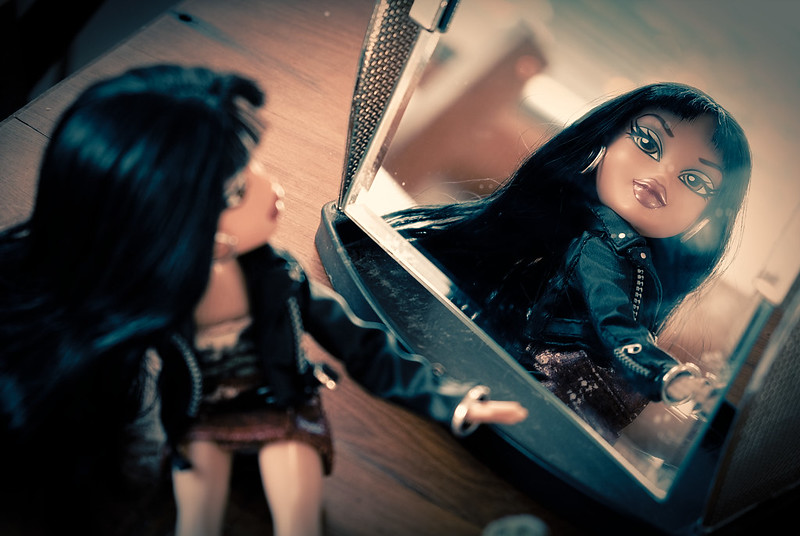Is it the summer of the brat?
What’s the deal with brats this summer? June has brought us Brat the novel, Brat the album, and Brats the documentary. We at Lit Hub have decided this cannot be a coincidence. And to understand this phenomenon, we must consider the word’s cultural freight.
So what is a brat, exactly? Some free association, towards a unifying theory: the word ‘brat’ makes me think of a peripatetic existence—because, military. That same affiliation casts a lightly noble light on the word. Following this tip, we might locate a brat in the collision of the nomadic and the dutiful. Is one definition, ‘the lone reed who speaks unpopular truth to power?’ Was Bartleby a brat? Or Sethe? Cassandra?
Of course, this doesn’t quite get at the word’s negative associations. My colleague Molly Odintz has another theory: that the word ‘brat’ is a dark minion of The System, i.e., an oppressive tool designed to quash rebellious spirits—particularly if these spirits emanate from femme people. She claims that in literature, the brat is in cahoots with the bildungsroman, where its rhetorical function is to staple rebellion to coming-of-age. This narrative has evil effects because it lets our overlords write all resistance off as a nuisance. Childish folly from dumb hormone bags.
Under this umbrella, we might define brat as a naysayer who plays poorly with others, to his or her social detriment. See Holden Caulfield, screaming “phony” all over New York. Or really, any bildungsroman with an unruly protagonist. Which brings us to England’s it-book of the summer: a Gen Z “spin on modern ennui” from the debut novelist Gabriel Smith.
Note: I have not read this book. But in a scathing review for The Baffler, Rhian Sasseen took Brat to task for its affect. “Too many moments in the novel come off as a self-aware thumbing of the nose,” she wrote. And elsewhere, in a wonderfully withering line, “It mistakes provocation as inherently substantive.”
It struck me that this diagnosis could describe a lot of literary youths—though it would contradict my first definition. Is the brat then, in our conservative culture, best described as someone with a rebellious spirit whose object of rebellion is ill-defined? The rebel without a cause?
Andrew McCarthy’s documentary on the Brat Pack has been criticized for both its cause and its affect. The doc hinges on a bone unpicked with the journalist who gave the Brat Pack its debatably derogatory name. And depending on your tolerance for famous faces punching down on freelancers, this plot point can come off as tone-deaf. A cautionary tale. See what happens when you refuse to grow up, brat. If you don’t move on, and let those childish wounds heal, you might get stuck screaming at the sky.
*
We’re still missing something key, though. Because the brat is gendered. An unscientific survey says that “brat” is more often hurled as an epithet at girl children, where boys get called “menace,” or “excitable.” We can see this linguistic hierarchy playing out all over the place, and note its effects in the joy we find watching a brat get hers.
Consider how, in many genres, the brat is the first one marked for comeuppance. Which is sometimes profound injury. Even death. Who goes first in the horror movie? Who gets hit by a bus, or falls through a glass coffee table after drinking Drano-spiked coffee? The brat, the brat, the brat.
Then again, children aren’t spared in the worst case scenarios. For their attempts to eat her house, that witch is ready to bake up some brats. Punishment and hunger, specifically for candy, are running motifs in children’s literature. For his rudeness, the brat may be drowned in a chocolate river. Or sucked down an egg chute, never to be seen again. (In the best versions, anyway.)
And sometimes the brat is just…fully Satan. This cultural manifestation really supports Molly’s theory, for nothing says “quash rebellion” so much as a priest throwing Holy Water at a small child. Take all the fairy tales together and you can trace a deep fear of kid want. And if it’s possible to see a child with unruly urges as the devil, or at least worth bedeviling, the grown-ups must be absolutely terrified of her demands.
*
Charli XCX invoked the devil with a line in her summer anthem, “360,” in which she referred to herself as “666 with a princess streak.” But curiously, Brat the album has been marketed as a mature gesture. Many column inches have been given to the record’s subtextual narrative, Charli’s now-resolved beef with Lorde. And I find this interesting, that a pop star can invoke rebellion aesthetically, even as she expresses a readiness to grow up (i.e., play with others).
The idea that one can have both an unruly affect and a clear demand might bring us to a whole new brat culture. And that leads finally to another non-coincidence: Charli XCX’s brat is my personal favorite of the summer’s offerings. This album shows that we can grow up and get over ourselves even as we stay hungry, rebellious, rude. And the moment we have something substantive to say, let us sing too loud about it! Overlords and age be damned.
To borrow a devil’s lyrics: “If you love it, if you hate it, I don’t f*cking care what you think.”





